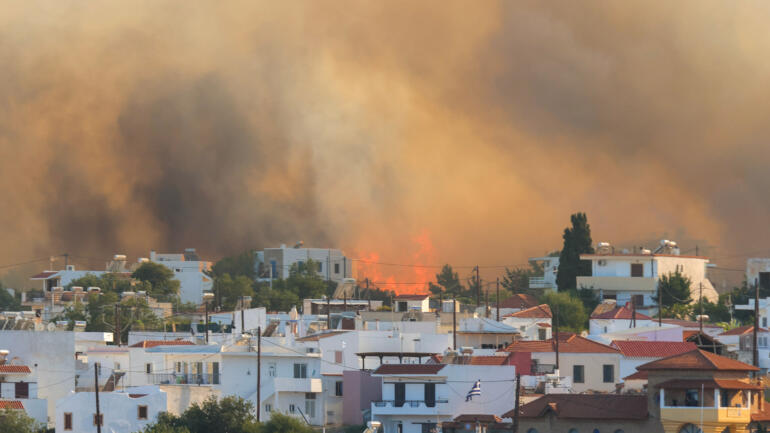Extreme weather during the month of July has wreaked havoc around the planet. Temperatures have reached record highs across China, the U.S., Southern Europe, and North Africa. Extreme weather has sparked forest fires, a rise in hospital admissions for heat-related issues, and water shortages.
Many climate scientists believe that the heat this month is the hottest in human civilization, or the hottest the earth has been in 120,000 years.
However, one study from the University of Maine’s climate analyzer found that the global average temperature in July 2022 was hotter than any day recorded so far in 2023.
As extreme heatwaves become more common, a study published on July 25 by researchers at the World Weather Attribution found a direct correlation between the increase of heat-trapping gases and the likelihood of heatwaves.
The scientists looked at three heat waves happening simultaneously on three different continents. The study found that they would not have happened in the American Southwest or in Southern Europe without the continued burning of fossil fuels (coal, natural gas, and oil) and the build-up of their warming gases in the air.
According to the study, the intense heatwave that the American Southwest is now facing is likely to happen every 15 years in the current climate. While the heatwaves in Spain, Greece, Italy, and the Balkans is likely to occur every 10 years. The study does not claim that global warming is the sole cause for the heatwaves, but says it is a necessary ingredient for the intense heat.
Wildfires bring death and destruction to the Mediterranean
Firefighters in Greece have been struggling to contain nearly 82 wildfires that have been raging on the island of Rhodes, as well as in other parts of the country. Of the wildfires, about 64 of them started on July 23, the hottest day of the summer so far.
Wildfires have been raging in several countries in the Mediterranean, made worse by this year’s heat wave.
A third consecutive heatwave in Greece sent temperatures soaring above 40 C (104 F) in some areas.
Thousands have evacuated the popular tourist islands due to the fires.
It is not yet clear how the wildfires started, however, dry conditions and the heat mean any spark can trigger a blaze.
The worst of the fires in Greece were on the popular islands of Rhodes and Corfu.
The fire has been burning for eight days in Rhodes and it continues to move inland.
EU officials have blamed the increasing frequency and intensity of wildfires on climate change.
For more, check out our exclusive content on CGTN Now and subscribe to our weekly newsletter, The China Report.
 CGTN America
CGTN America
